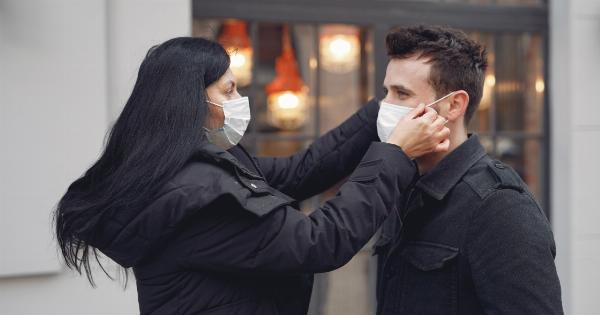Fevers are a common occurrence, especially during flu seasons or as a symptom of various illnesses. Although a fever itself is not necessarily dangerous, it is important to understand the symptoms to watch for and steps to take when dealing with one.
By being aware of the signs and taking appropriate measures, you can help manage your fever and ensure a speedy recovery.
Symptoms of a Fever
Before diving into the steps to take when a fever strikes, it is crucial to be familiar with the symptoms associated with a fever. These symptoms can vary from person to person and can include:.
- Elevated body temperature above the normal range
- Hot and flushed skin
- Chills and shivering
- Headache
- Muscle aches and weakness
- Sweating
- Loss of appetite
- General malaise and fatigue
If you experience any of these symptoms, it is essential to take steps to manage your fever effectively.
Steps to Take When a Fever Strikes
When a fever strikes, it is important to take appropriate steps to alleviate symptoms and aid in recovery. Here are some actionable steps you can take:.
1. Monitor Your Body Temperature
Use a reliable thermometer to keep track of your body temperature regularly. This will help you understand the severity of your fever and whether it is getting better or worse.
Ensure you use the thermometer correctly and follow the instructions provided.
2. Stay Hydrated
Increased body temperature can lead to dehydration. Be sure to drink plenty of fluids such as water, herbal teas, or clear broths to keep yourself hydrated. Avoid caffeinated beverages and alcohol as they can further dehydrate your body.
3. Get Plenty of Rest
Allow your body to recover by getting enough rest. Take time off work or school if needed and prioritize sleep. Adequate rest helps your immune system fight off infections more effectively.
4. Use Over-the-Counter Medications
Over-the-counter medications such as acetaminophen or ibuprofen can help reduce fever and alleviate symptoms.
Always follow the recommended dosage and consult with a healthcare professional if you have any existing medical conditions or if you are taking other medications.
5. Dress Comfortably
Avoid wearing heavy or excessive clothing that might trap heat and raise your body temperature further. Opt for loose, breathable clothing that will help dissipate heat and keep you comfortable.
6. Take a Lukewarm Bath
If your fever is particularly high or causing discomfort, taking a lukewarm bath can provide temporary relief. Avoid using cold water, as it can cause shivering and raise body temperature further.
7. Apply Cooling Measures
Use cooling measures such as cold compresses or damp washcloths on your forehead, neck, or wrists to help reduce body temperature and provide relief from the heat. Ensure the compress or cloth is not too cold to avoid discomfort.
8. Seek Medical Attention if Necessary
Most fevers resolve on their own within a few days. However, there are certain situations where seeking medical attention is necessary. Consult a healthcare professional if:.
- Your fever persists for more than three days
- Your fever is accompanied by severe headache, stiff neck, or rash
- You experience difficulty breathing or chest pain
- Your fever is accompanied by seizures
- You have underlying medical conditions that may complicate your fever
It is important to listen to your body and seek medical advice if needed.
9. Practice Good Hygiene
To prevent the spread of infections and to protect others, practice good hygiene habits.
This includes regular handwashing with soap and water, covering your mouth and nose when sneezing or coughing, and avoiding close contact with others when contagious.
10. Follow Your Healthcare Provider’s Advice
If you have an underlying medical condition or are taking medications, it is essential to follow your healthcare provider’s advice regarding managing your fever. They can provide specific instructions tailored to your situation.
Conclusion
When a fever strikes, it is crucial to recognize the symptoms and take appropriate steps to manage it effectively.
By monitoring your body temperature, staying hydrated, getting plenty of rest, using over-the-counter medications when necessary, dressing comfortably, taking lukewarm baths, applying cooling measures, and seeking medical attention if needed, you can help alleviate symptoms and promote a faster recovery. Remember to practice good hygiene and follow the guidance of your healthcare provider. With proper care and attention, you can navigate through the discomfort of a fever and return to your optimal health.






























